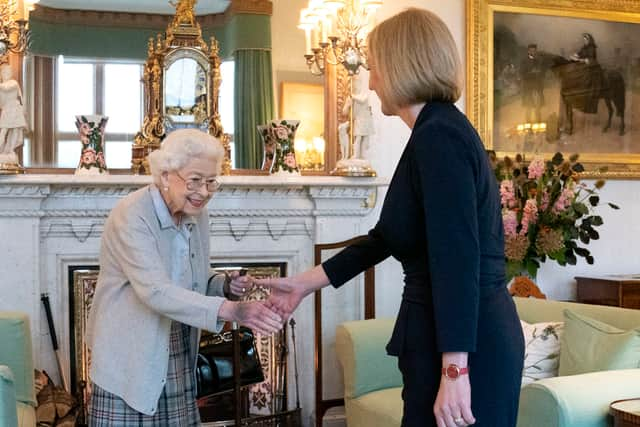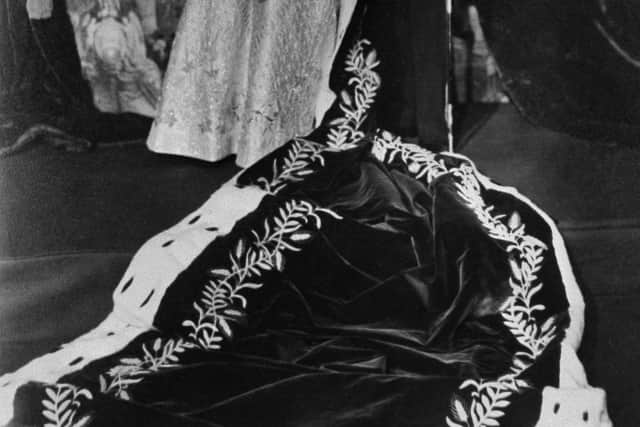Will the Queen have a state funeral? When and what happens at royal funeral - did Diana have one?
and live on Freeview channel 276
Queen Elizabeth II has died at her holiday home at Balmoral Castle in Scotland, aged 96.
Queen Elizabeth was the longest serving monarch in British history and the second longest serving monarch in the world - in total she spent a remarkable 70 years on the throne.
Advertisement
Hide AdAdvertisement
Hide AdThe death of Queen Elizabeth triggers a series of carefully constructed plans which have been referred to as Operation London Bridge.
But will the Queen have a state funeral and when will the royal occasion take place?


When is the Queen’s funeral?
The funeral for Queen Elizabeth II will take place at 11am (BST) on Monday 19 September. The royal occassion will be held at Westminster Abbey.
Will there be a bank holiday for the Queen’s funeral?
King Charles III has confirmed that a national bank holiday will take place to commemorate the Queen’s funeral. The government issued a statement which said it will: “give as many people as possible the opportunity on the day of the state funeral to mark her majesty’s passing.”
Will the Queen have a state funeral?
Advertisement
Hide AdAdvertisement
Hide AdThe royal family have confirmed that a state funeral will be held for Queen Elizabeth II.
A two minute silence will be held at midday for the Queen’s funeral.
There will be processions both in London and Windsor, with a service taking place at St George’s Chapel and the Queen will be buried at the King George VI Memorial Chapel in Windsor.
What happens at a state funeral?
A state funeral is a public funeral ceremony held to honour people of national significance. State funerals are held to include the general public during a national day of mourning.
Advertisement
Hide AdAdvertisement
Hide AdDuring a state funeral there will be a military procession where the coffin is borne on a gun carriage from the private resting chapel to Westminster Hall. In a royal ceremony this carriage is pulled by horses with the body remaining in Westminster Hall for three days.
State funerals are organised and overseen by the Earl Marshal and his officers.
When was the last state funeral?
The last state funeral to be held in the UK took place in 1965 following the death of former prime minister Winston Churchill.
Churchill was the prime minister of Britain during the second world war from 1940-1945 and served again as prime minister from 1951 to 1955.
Advertisement
Hide AdAdvertisement
Hide AdChurchill was the first prime minister of Queen Elizabeth’s reign as monarch and a state funeral was held for Churchill in 1965 with the service taking place at St Paul’s cathedral and the burial taking place at St Martin’s Church.


When was the last state funeral for a royal?
The last royal to have a state funeral was Queen Elizabeth’s father King George VI. The service and burial took place in 1952 at St George’s Chapel in Windsor.
Elizabeth was the oldest daughter of King George and stepped into power at the age of 25. This made her the youngest monarch since King Charles I in 1625.
What is the difference between a state and ceremonial funeral?
During the Queen’s reign in power there have been a number of notable funerals for royals such as the Queen Mother, Princess Diana and most recently the loss of her husband Prince Phillip.
Advertisement
Hide AdAdvertisement
Hide AdHowever many of these figures have had a ceremonial funeral rather than a state funeral. Although there are many similarities between the two, ceremonial funerals are often a more private affair than a state funeral.
The key difference between a ceremonial funeral and a state funeral is that a ceremonial funeral does not require parliamentary approval or funding.
Comment Guidelines
National World encourages reader discussion on our stories. User feedback, insights and back-and-forth exchanges add a rich layer of context to reporting. Please review our Community Guidelines before commenting.
